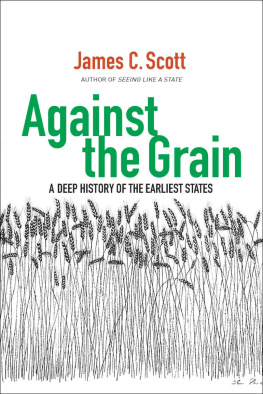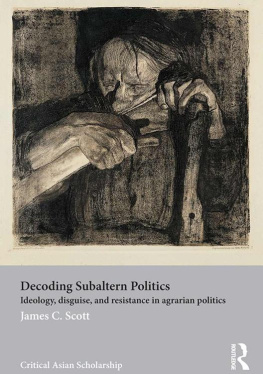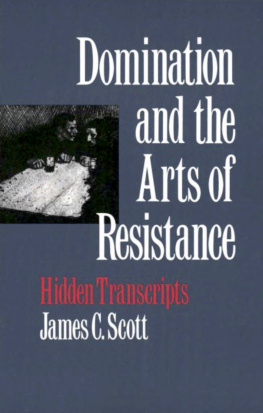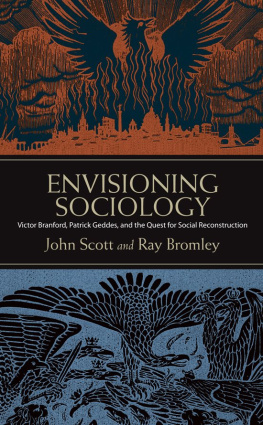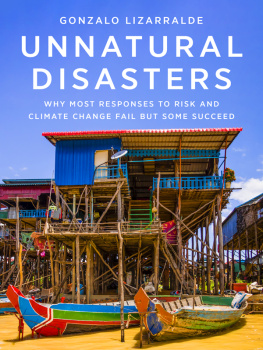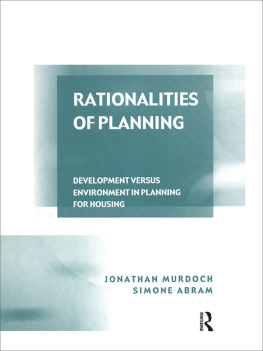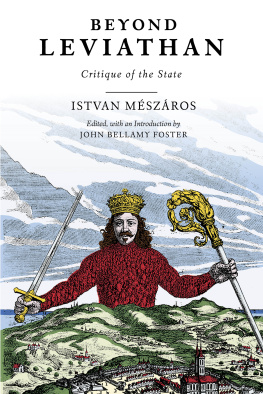Seeing Like a State
Seeing
Like a State
How Certain Schemes to Improve the Human Condition Have Failed
James C. Scott
A VERITAS PAPERBACK

Veritas paperback edition, 2020
Copyright 1998 by Yale University.
All rights reserved.
This book may not be reproduced, in whole or in part, including illustrations, in any form (beyond that copying permitted by Sections 107 and 108 of the U.S. Copyright Law and except by reviewers for the public press), without written permission from the publishers.
Originally published in 1998 by Yale University Press.
Designed by James J. Johnson and set in Aster type by Running Feet Books, Durham, NC.
Printed in the United States of America
The Library of Congress has catalogued the hardcover edition as follows:
Scott, James C.
Seeing like a state : how certain schemes to improve the human condition have failed / James C. Scott.
p. cm.(Yale agrarian studies) (The Yale ISPS series)
Includes bibliographical references and index.
ISBN 0300-07016-0 (cloth : alk. paper)
ISBN 13: 978-0-300-07815-2 (pbk.: alk. paper)
1. Central planningSocial aspects. 2. Social engineering. 3. Authoritarianism.
I. Title. II. Series. III. Series: The Yale ISPS series.
HD87.5.S365 1998
338.9dc21 97-26556
Veritas Paperback Edition ISBN: 978-0-300-24675-9
A catalogue record for this book is available from the British Library.
10 9 8 7 6 5 4 3 2 1
For Louise, again, always
OWEN: What is happening?
YOLLAND: Im not sure. But Im concerned about my part in it. Its an eviction of sorts.
OWEN: Were making a six-inch map of the country. Is there something sinister in that?
YOLLAND: Not in
OWEN: And were taking place names that are riddled with confusion and
YOLLAND: Whos confused? Are the people confused?
OWEN: And were standardising those names as accurately and as sensitively as we can.
YOLLAND: Something is being eroded.
Brian Friel, Translations 2.1
Contents
Acknowledgments
This book has been longer in the making than I would care to admit. It would be nice to be able to claim that it just took that long to think it through. Nice, but not truthful. A nearly fatal combination of malingering and administrative chores accounts for part of the delay. For the rest, the scope of the book simply expanded, in an academic version of Parkinsons Law, to fill all the space that I would give to it. Finally, I had to call an arbitrary halt or else start thinking of it as a lifes work.
The scope of the book together with the time it took to complete it explain the long list of intellectual debts I have accumulated along the way. A full accounting of them would be interminable except for the fact that I realize some of my creditors would just as soon not be associated with the final product. Though I shall not implicate them here, I owe them nonetheless. Instead of turning my argument in the direction they urged, I took their criticisms to heart by fortifying my case so that it would better answer their objections. My other intellectual creditors, having failed to disavow the final product in advance, will be named here and, it is to be hoped, implicated.
Some of my debts are to institutions. I spent the 199091 academic year at the Wissenschaftskolleg zu Berlin as a recipient of their hospitality and largesse. The temptation of living for a time in Berlin, just a year after the Wall came down, proved irresistible. After physically laboring for six weeks on an ex-collective farm on the Mecklenburg Plain in eastern Germany (an alternative that I dreamed up to avoid sitting for six weeks in Goethe Institute classes with pimply teenagers), I hurled myself at the German language, Berlin, and my German colleagues. My research hardly advanced in any formal sense, but I realize that many fruitful lines of inquiry opened up then. I want particularly to thank Wolf Lepenies, Reinhard Prasser, Joachim Nettlebeck, Barbara Sanders, Barbara Golf, Christine Klohn, and Gerhard Riedel for their many kindnesses. The intellectual boon companionship of Georg Elwert, my local patron saint, as well as that of Shalini Randeria, Gabor Klaniczay, Christoph Harbsmeier, Barbara Lane, Mitchell Ash, Juan Linz, Jochen Blaschke, Arthur von Mehren, Akim von Oppen, Hans Luther, Carola Lenz, Gerd Spittler, Hans Medick, and Alf Ldke opened my eyes to lines of inquiry that proved formative. Only the great efforts and unfailing friendship of Heinz Lechleiter and Ursula Hess brought my German to a (barely) tolerable level.
At various stages in the laborious preparation of this book, I had the privilege of making extended visits to institutions filled with large-spirited but skeptical colleagues. My good luck was that they so often made a project of straightening me out. They might not be satisfied with the final result, but Ill bet that they can see their influence at work. At the Ecole des Hautes Etudes en Sciences Sociales, Marseille, I especially want to thank my patron, Jean-Pierre Olivier de Sardan, Thomas Bierschenk, and their colleagues in the staff seminar. Living in Le Vieux Panier and working every day in the magnificent atmosphere of La Vielle Charit were unforgettable experiences. At the Humanities Research Centre at the Australian National University in Canberra, I had the benefit of an unmatched crowd of humanists and Asian specialists looking over my shoulder. Thanks go in particular to Graeme Clark, director, and Iain McCalman, associate director, who invited me, and to Tony Reid and David Kelly, who organized the conference, Ideas of Freedom in Asia, which was the premise of my visit. Tony Milner and Claire Milner, Ranajit Guha (my guru) and Mechthild Guha, Bob Goodin and Diane Gibson, Ben Tria Kerkvliet and Melinda Tria, Bill Jenner, Ian Wilson, and John Walker in various ways made my stay convivial and intellectually rewarding.
This book would definitely have been much longer in the making were it not for the fact that Dick Ohmann and Betsy Traube invited me to spend the academic year of 199495 as a fellow of the Center for Humanities at Wesleyan University. My colleagues there and our weekly seminars together were intellectually bracing, thanks in large part to Betsy Traubes capacity to frame each paper brilliantly. The centers ideal combination of solitude and a staff that could not have been more helpful allowed me to finish a first draft of the entire manuscript. I am enormously grateful to Pat Camden and Jackie Rich for their inexhaustible fund of kindnesses. The astute insights of Betsy Traube and Khachig Tololyan mark this work in many ways. Thanks also to Bill Cohen, Peter Rutland, and Judith Goldstein.
I would not have had the leisure for reflection and writing in 199495 had it not been for generous grants from the Harry Frank Guggenheim Foundation (Research for Understanding and Reducing Violence, Aggression, and Dominance) and a John D. and Catherine T. MacArthur Foundation Peace and Security Program Fellowship. But for their confidence in my work and their assistance, which made possible a respite from all administrative and teaching chores, I wouldnt have had a prayer of finishing this study when I did.
Finally, I want to thank my colleagues in the Netherlands and at the Amsterdam School for Social Science Research for the opportunity of visiting there in order to give the Sixth Annual W. F. Wertheim Lecture: Jan Breman, Bram de Swaan, Hans Sonneveld, Otto van den Muijzenberg, Anton Blok, Rod Aya, Roseanne Rutten, Johan Goudsblom, Jan-Willem Duyvendak, Ido de Haan, Johan Heilbron, Jose Komen, Karin Peperkamp, Niels Mulder, Frans Hsken, Ben White, Jan Nederveen Pieterse, Franz von Benda-Beckmann, and Keebet von Benda-Beckmann. Having Wim Wertheim there to offer advice and criticism was a great privilege for me, for I have admired his many contributions to social science theory and Southeast Asian studies. I learned at least as much from the thesis-writing graduate students in my seminar there as they learned from me; Talja Potters and Peer Smets were kind enough to read my chapter on urban planning and provide searching critiques.
Next page

